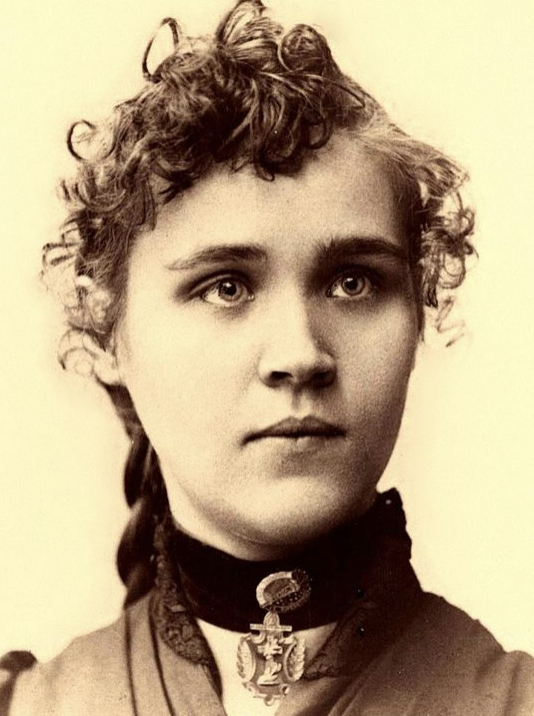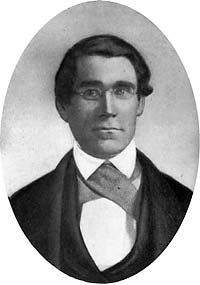November 17
Voltairine de Cleyre

On this date in 1866, freethinker Voltairine de Cleyre was born in Leslie, Mich., to French immigrant Hector and Harriet (Billings) de Cleyre. Her father, a struggling tailor and admirer of Voltaire, coined her name. By age 19 she had declared herself a freethinker, marking the moment with a poem and pledging to “consecrate my service to the world!” In 1886 she became editor of The Progressive Age in Grand Rapids. The next year she launched a lecture tour before freethought groups. Tall, slim, with arresting features, blue eyes and curly brown hair, she must have made an impression in her version of a Greek toga.
The execution of four innocent anarchists in 1887 for the Haymarket bombing was a turning point for her. She dedicated herself to anarchism, but every speech and article, whether on politics or feminism, included her freethought views. She set off on a lecture tour in Kansas for the Woman’s National Liberal Union and founded a related league in Philadelphia, lecturing on such topics as “Sex Slavery.” She lived meagerly by teaching immigrants and translating. She became pregnant by freethinker James B. Elliot and gave birth to their son Harry in June 1890. She and Elliot agreed that Harry would live with Elliot and she would have no part in his upbringing.
In 1902 a deranged former pupil shot her four times at close range. She survived and was back on the lecture circuit three months later. She even raised defense funds for the perpetrator, whom she called “the product of a diseased brain.” In an eloquent essay, she decried punishment and imprisonment for its own sake, holding Christianity accountable for a “new class of imbruted men.” (“Crime and Punishment,” 1903.)
De Cleyre, long plagued by sinus problems, fell ill again and died of septic meningitis nine weeks later after two operations at age 45. She was buried in Waldheim Cemetery next to the graves of the Haymarket anarchists as 2,000 people gathered. (D. 1912)
PHOTO: De Cleyre in 1891 at age 25.
"The question of souls is old — we demand our bodies, now. We are tired of promises, God is deaf, and his church is our worst enemy."
— De Cleyre "Sex Slavery" lecture in Philadelphia (1890)
Stephen Symonds Foster

On this date in 1809, Stephen Symonds Foster was born in Canterbury, N.H. He graduated from Dartmouth College in 1838 and went on to enroll in Union Theological Seminary, where he became disheartened with the pro-slavery views of many churches. The principal of Union Theological Seminary offered Foster a bribe to stop discussing his position on slavery, but Foster declined and left the seminary after only a year.
He helped to organize the New Hampshire Young Men’s Anti-Slavery Society and was a member of the American Anti-Slavery Society, along with his wife, Abigail Kelley. Foster and Kelley were also strong supporters of women’s rights and the temperance movement. The family lived on a farm called Liberty Farm in Massachusetts, which they used to help slaves escape on the underground railroad.
Foster was an outspoken abolitionist who critiqued churches for their support of slavery, often interrupting services to rail against it. In 1844 he published the pamphlet “The Brotherhood of Thieves; or, a True Picture of the American Church and Clergy,” an exposé of the anti-abolitionist views of churches and the clergy. In the introduction he described it as a “testimony against the popular religion of our country.” (D. 1881)
“During the 1844 New England Antislavery Convention, Foster held up a collar and manacles and declared, ‘Behold here a specimen of the religion of this land, the handiwork of the American church and clergy.’ "
— "The Puritan Origins of American Patriotism" by George McKenna (2007)
